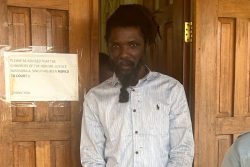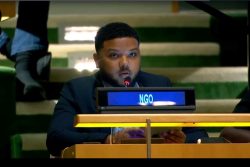WASHINGTON, (Reuters) – U.S. President Barack Obama held a crucial meeting last week in which his advisers debated three options for dealing with top-secret information about a luxury compound in Pakistan where they thought Osama bin Laden might be hiding.
At a two-hour meeting in the ultra-secure White House Situation Room, the team discussed the pros and cons of a raid on the compound by a small group of elite U.S. forces, according to a senior administration official who spoke on condition of anonymity.
The two other alternatives were to conduct a strike or to wait for information that might lend greater clarity on whether the al Qaeda leader was indeed holed up at the fortress-like compound outside of Islamabad, the official said.
Obama’s advisers were split at the Thursday meeting and the president took a night to think about the decision, the official said.
On Friday morning, just before leaving to visit tornado-hit Alabama, Obama revealed to a small group of aides that he had decided in favor of an immediate raid, the official said.
“It’s a go,” Obama told his advisers, as he ordered the operation that led to killing of the mastermind of the Sept. 11, 2001 attacks on the United States.
Information about the Abbotabad compound had surfaced last August but it was not until March that U.S. officials felt convinced enough of bin Laden’s potential presence there that they began to develop a list of options.
U.S. intelligence analysts had been monitoring the complex, observing that there was a million-dollar home there owned by someone with no apparent source of income. There also appeared to be a family living there, including a man who never left the compound, according to the official.
NO ONE KNEW FOR SURE
The family seemed to fit a profile of bin Laden’s family. Still, right up until the end, no one in the Obama administration, including the U.S. president, knew for sure.
The discussions over what to do took place over a period of weeks in meetings that were so closely held, no photographers were present and the sessions were not given titles, the official said.
Because the person who was believed to be bin Laden seemed always to remain at the compound, that removed some of the pressure to act immediately on the suspicions.
Still, Obama and his aides feared delaying action too long would increase the risk that word of the surveillance might leak out and their target might flee, the official said.
The timing of Obama’s Friday order of the raid was driven in part by that concern. Also playing a role in the timing was the fact that the U.S. Navy SEAL team had carried out a number of rehearsals of the operation and was deemed ready to move ahead by its commander.
On Sunday afternoon, Obama convened a meeting at the White House where the mood was “tense” and “anxiety-ridden” as the group monitored the unfolding operation on a screen, the official said.
Those present included U.S. Secretary of State of Hillary Clinton, Defense Secretary Robert Gates, White House National Security Adviser Tom Donilon and White House counterterrorism adviser John Brennan.
“We got him, guys,” Obama said in reaction to the news of bin Laden’s death.
Trending








